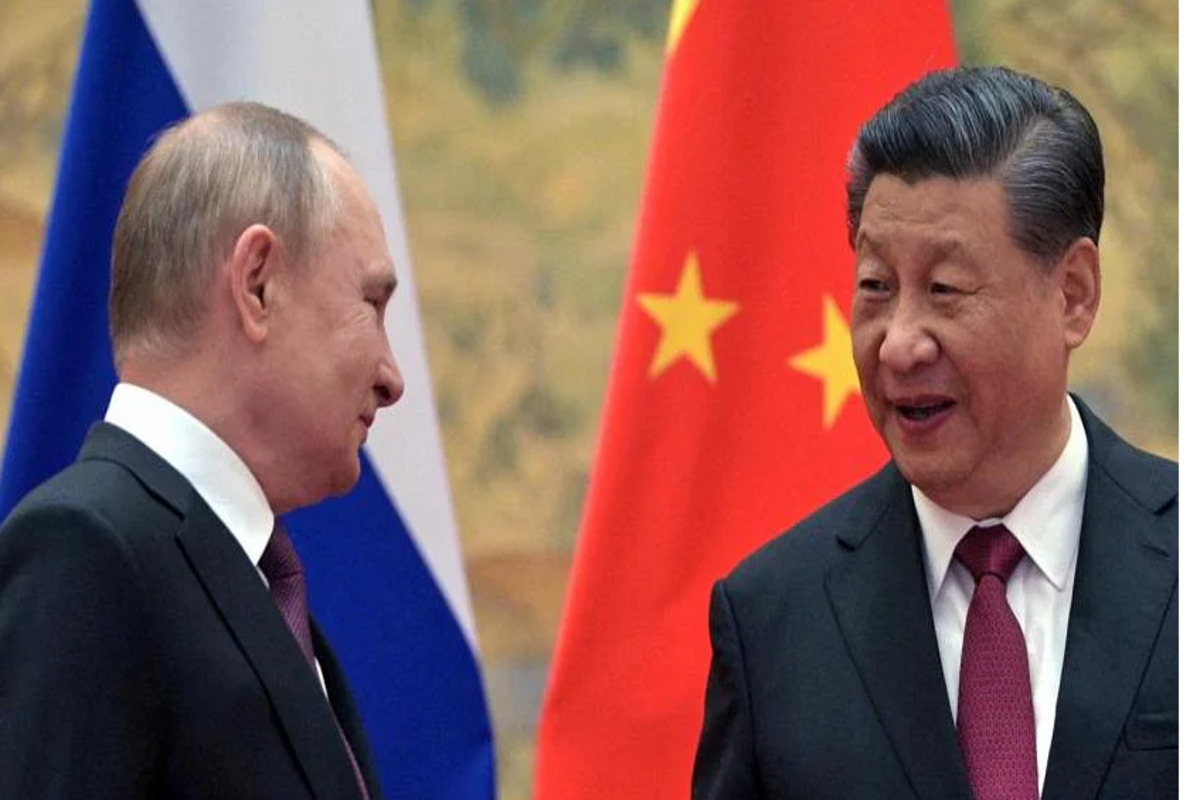Washington is putting Europe in its place
The Ukraine Defence Contact Group (UDCG) was the first event on European soil for the new Donald Trump administration followed closely by the Munich Security Conference.
“China keeps avoiding military involvement in any degree in Russia’s war and will continue to do so, especially when the Russians have been in a drastic failure situation in the field,” said Shi Yinhong, a professor of international relations at Renmin University in Beijing. “China’s diplomatic and political support or sympathy will not really help them, though dramatic purchases of their energy since April help a little non-militarily.”

Representation image (PHOTO: REUTERS/ANI)
The summit this week between President Vladimir Putin of Russia and Xi Jinping of China is a show of force by two autocratic leaders united against what they consider American hegemony. It is also a moment of mutual weakness as Russia suffers losses in Ukraine and China endures an economic slowdown.
They come to the meeting, expected to take place this week in Uzbekistan, with their own agendas and their own challenges that will test an important relationship both have described as a friendship with “no limits”.
Advertisement
Moscow needs Beijing. Russia’s recent routs on the battlefields of Ukraine, coupled with the broad damage inflicted by Western sanctions, have made Chinese support all the more important. China has emerged as a major buyer of Russian commodities, purchases that have helped replenish Moscow’s coffers.
Advertisement
Beijing, though, remains cautious. It wants to project strength in the increasingly acrimonious competition with the United States and can’t afford for its main partner in an authoritarian alliance to face a humiliating defeat. But providing substantial, additional help to Russia, either economically or militarily, risks running afoul of Western sanctions and imperiling China’s economy.
“Xi’s China has been carrying out an exquisite tightrope walk with regard to Russia,” said Rana Mitter, a professor of history and politics at Oxford University. “It is keen to show support for Russia in general, but finds active support for an invasion too politically embarrassing to contemplate and wants Moscow to resolve matters one way or another.”
Image matters for Mr Xi as he prepares to secure a third term at a pivotal Communist Party congress in Beijing next month. His trip this week, during which he will attend a regional summit in Uzbekistan and visit Kazakhstan, marks the first time Mr Xi has travelled abroad since the start of the pandemic and signals just how much he values the relationship. The meeting with Mr Putin will give the Chinese leader a chance to look like a global statesman, playing well to a home audience.
But China has tied itself to a war that has so far backfired for Russia. Any serious weakening of Mr Putin’s dominance in Russia could hurt Beijing’s position at a time when the leadership is dealing with the political and economic fallout from its strict Covid-19 policies.
The question confronting China is whether to double down or let Russia navigate the setbacks on its own. Both strategies carry risks, and most experts expect China to choose a middle path of continued economic support without openly circumventing sanctions or providing outright military assistance.
China, which has avoided describing Russia’s invasion of Ukraine as a war, appears to be tempering its bets. When Mr Xi’s second-highest-ranking deputy, Li Zhanshu, met with Mr Putin in Russia last week, Chinese state media emphasised the two countries’ shared admiration but steered clear of overt advocacy for Russia’s actions in Ukraine.
China’s official Xinhua News Agency said Mr Li has told Mr Putin that, “political mutual trust, strategic coordination and pragmatic cooperation between the two countries have reached an unprecedented level”.
Xinhua made no mention of Ukraine, even as Russian state media claimed Beijing backed the invasion, portraying Mr Li as having said that China “understands and supports Russia” particularly “on the situation in Ukraine”.
“China keeps avoiding military involvement in any degree in Russia’s war and will continue to do so, especially when the Russians have been in a drastic failure situation in the field,” said Shi Yinhong, a professor of international relations at Renmin University in Beijing. “China’s diplomatic and political support or sympathy will not really help them, though dramatic purchases of their energy since April help a little non-militarily.”
Advertisement